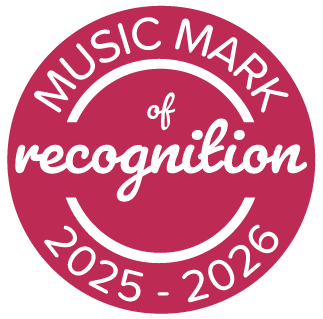

Being a Philosopher at Gomeldon Primary School - RE
Intent
At Gomeldon Primary School, we are committed to a high-quality, enquiry-based RE curriculum that will help pupils, in particular our most disadvantaged learners, to gain a coherent knowledge and understanding of the main world religions. Our curriculum is carefully planned to ensure that all pupils learn about the key issues and concepts of RE during their time at school, whilst also equipping them with secure methods of Philosophical enquiry and a Philosophical perspective. Topics are informed by the National Curriculum and are structured to ensure that current learning is linked to previous knowledge and understanding. Learning experiences are enriched through opportunities such as educational visits and visitors to the school.
Our PSHE curriculum supports our “R Values”:
Reflection: Gomeldon pupils are supported to develop the skill of “Philosophical thinking” through our “Key Questions” curriculum, class and group discussions. Pupils will learn about key issues within the main world religions under the headings of: Knowledge and Understanding; Critical Thinking and Reflection; Communication and Expression and Respect and Empathy.
Resourcefulness: Gomeldon Primary School encourages pupils to be resourceful in their approach to learning RE. They will draw on their prior knowledge and be encouraged to develop an investigative and problem-solving attitude which will provided excellent preparation for later study within primary school and beyond.
Resilience: In their study of RE, pupils will be required to find “solutions” to “Key Questions”, and empathise with key issues, beliefs and cultures. Pupils will need to work both independently and as part of a group, and be able to accept feedback from others who may respectfully challenge their opinions.
Relationships: pupils will work collaboratively to explore topics and “Key Questions”, sharing ideas and deciding on a suitable approach to a problem. Pupils will be supportive of each other, and respectful as they share ideas and celebrate each other’s successes.
Implementation
In line with the NC 2014, the curriculum at Gomeldon ensures that all pupils are taught about key beliefs, practices and customs of all the main world religions.
Furthermore, pupils will develop: a broad Philosophical vocabulary of words; an understanding of key concepts; an appreciation of how religious beliefs, traditions and practices influence communities.
In Key Stage One, the Gomeldon Religious Education curriculum introduces children to different religions, beliefs, and cultures, fostering respect, curiosity, and understanding of the world around them.
In Key Stage Two, the Gomeldon Religious Education curriculum builds on the foundational knowledge from Key Stage 1 and deepens children’s understanding of world religions, beliefs, and ethical concepts. The curriculum aims to foster respect, curiosity, and critical thinking, as children explore a wider range of religious practices, teachings, and philosophical ideas.
RE is taught in termly blocks throughout the year, so that children achieve depth in their learning. RE lessons are based around “Key Questions” to encourage pupils to develop the knowledge and skills they need to be capable and reflective learners in the subject now, and beyond primary school.
Consideration is given to how greater depth will be taught, learnt and demonstrated within each lesson, as well as how learners will be supported in line with the school’s commitment to inclusion.
Outcomes of work are monitored to ensure that they reflect a sound understanding of the key identified knowledge.
Impact
Books evidence a broad and balanced RE curriculum and demonstrate the children’s development of identified key knowledge. Children are beginning to make connections across topics and in other areas of the curriculum, particularly in English.
By the end of Year 6 in England, children are expected to have developed a comprehensive understanding of religious education that reflects their exploration of various world religions and the ethical, philosophical, and social issues related to these beliefs.
Right to Withdraw
Gomeldon Primary School believes that it is important for children to learn about the beliefs and values held by others. The acquisition of skills and attitudes developed through Religious Education are an important part of the development of children’s learning and are crucial for their lives as members of a multicultural society. Religious Education is not simply just teaching religious faiths and beliefs, but giving children the opportunity of exploring the spiritual and moral dimensions of life in a safe, supportive environment.
Parents have the legal right to withdraw pupils from RE, however we hope this would be a last resort due to the importance of the learning involved and the understanding about the world and our community. If parents would like to begin the process of withdrawal, this must first be discussed with the class teacher, RE lead and Head teacher. This will involve a meeting where we will share with parents the learning objectives and more detail of what is covered in the RE curriculum, ensuring that parents have all the information required to make a fully informed decision. If the parent chooses to go ahead and withdraw their child from RE, this must be given to the school in writing by the parent. No reason needs to be given for the decision but we will review the decision with the family at the start of each new school year.
Please note that the right of withdrawal from RE lessons does not extend to other areas of the curriculum when, as may happen on occasion, spontaneous questions on religious matters are raised by pupils or there are issues related to religion that arise in other subjects such as History or PSHE.







